










A publication of the Wisconsin Institute of CPAs | wicpa.org












A publication of the Wisconsin Institute of CPAs | wicpa.org
Accounting majors and CPA Exam candidates are on the decline.
Educators say new pathways need to be forged to get and keep students in accounting.
By Marcia Tillett-ZinzowAs the pipeline of accounting talent decreases, small to mid-sized firms are reimagining recruiting processes and retooling workplace cultures.
By Ken Wysocky16

The window on the current CPA Exam format is quickly closing, making the new CPA Evolution licensure format an imperative classroom focus.
By BrigidD’Souza, CPA, MBA
20 Potential reform in Madison threatens CPA licensure
Over the past five years, protecting the CPA license from deregulation efforts at the state level has become paramount for CPA profession advocates.
By James CoxUpdate on the Corporate Transparency Act of 2020
Final regulations governing implementation of the federal Corporate Transparency Act of 2020 have been approved and the timeline moved to Jan. 1, 2024.
ByJoseph W. Boucher, CPA, MBA, JD and Sam Wayne, JD
What should we expect from the IRS?
Nearly $80 billion was granted to the IRS under the Inflation Reduction Act of 2022. You may be surprised at how it will be spent.
By Robert B. Teuber, JD
The new financial reporting model
Key performance indicator (KPI) dashboards provide the opportunity for CPAs to do a better job of informing clients, business owners and management teams.
 By
By
John H. Higgins, CPA.CITP
36
Connecting the dots of CAS
What makes client accounting services (CAS) different from more traditional compliancerelated services like tax and audit?
By Kate SmithOn Balance is published five times a year by the Wisconsin Institute of Certified Public Accountants (WICPA). Change of address should be sent to: Membership, W233N2080 Ridgeview Pkwy, Suite 201, Waukesha, WI 53188; Phone: 262-785-0445 or 800-772-6939; Fax: 262-785-0838; email: comments@wicpa.org. Statements and opinions expressed are those of the authors and not necessarily those of the WICPA. Publication of an advertisement does not constitute an endorsement of the product or service by On Balance or the WICPA. Articles may be reproduced with permission. © Copyright 2023 On Balance
2022-2023
Chair
Steven A. Pullara, CPA, CGMA
Chair-elect
Matthew J. Schaefer, CPA, CGMA
Past Chair
Angela C. Thomas, CPA
Secretary/Treasurer
Lucien A. Beaudry, CPA, JD
Directors
Christopher M. Cholka, CPA, CGMA John R. Heindel, CPA
Donna R. Scaffidi, CPA Kyle R. Stephens, CPA Stacy A. Stinson, CPA
Ruth A. Kallio-Mielke, CPA Neil R. Keller, CPA/ABV, CVA

Spectrum Investment Advisors co-sponsors the annual Retirement Plan Investment Seminar, which offers WICPA members CPE credits at a nominal cost. WICPA members can work directly with Spectrum to receive plan consulting services for their retirement plan program as well as individual wealth/asset management services.
von Briesen’s tax attorneys are experienced in every type of matter that may present a significant tax issue. Many of our tax attorneys have advanced tax degrees or certifications along with the knowledge and experience to assist in state, local, federal and international issues.
For more than 125 years, West Bend has provided valuable insurance coverages and services to home, auto and business owners. Members can receive a discount on West Bend’s Home and Highway program and be rewarded for going claim-free for the year.
These affinity partners and more can be found at wicpa.org/discounts.
many of us, it is also the start of busy season.
Every year, I find this to be an exciting time because we make resolutions, set new goals and get a chance to reset from last year, whether it was a great one or not. One of the goals I set just about every year is to make sure I’m making the highest and best use of time with an 80-20 mindset. The 80–20 rule underscores the importance of exerting energy on those aspects of business — and life — that get the best results.

For me, this usually involves listing all my activities, tasks and responsibilities on a piece of paper (I know, it’s a bit oldfashioned). Then I separate them into three buckets: one for high-priority and impactful things I should continue to do and focus on, one for things that are not as high a priority or as impactful that I should delegate and leverage to other folks, and one for things that are time wasters and energy zappers
making the highest and best use of our time, it’s prudent to focus on this famous quote:
Time is free, but it’s priceless. You can’t own it, but you can use it. You can’t keep it, but you can spend it. Once you’ve lost it, you can never get it back.
– Harvey Mackay*
Wishing you all a healthy and happy 2023!
* Harvey Mackay is an American businessman, author and syndicated columnist with United Feature Syndicate.
608-828-3156 or spullara@bdo.com.

“One of the goals I set just about every year is to make sure I’m making theSteve Pullara, CPA, is a tax partner with BDO USA LLP in their Madison office. He leads the Wisconsin real estate and construction practice groups. Pullara also teaches financial management through UW–Madison’s School of Business, Small Business Development Center. Contact him at

 By Tammy J. Hofstede
By Tammy J. Hofstede
As we continue to see the pipeline challenges of baby boomer retirements, lingering workforce issues from COVID and the decline in number of college students entering the accounting field, we also see opportunities to educate and create awareness of the many career options with unlimited salary potential available in the CPA profession and to dispel the perceptions of accounting being “uncool.”
The CPA pipeline is an ongoing discussion among the WICPA board of directors, staff and educators as well as other state CPA societies. At the WICPA, we have developed a student recruitment campaign called “Level Up” to increase awareness and excitement for a career in accounting and to place becoming a CPA in a fresh light.
The Level Up campaign, which is set to launch by spring, represents the path to becoming a CPA and attaining career success. It illuminates an accounting degree and the CPA credential as powerful tools for long-term success in the
business world, continued growth and high earning potential. Our campaign consists of the following initiatives, some of which have already been completed:
• Develop a first-impression, eye-catching marketing sheet showing students how to “level up” their careers to be CPAs.
• Record a number of member videos showcasing the different careers and industries for CPAs, from tax and audit to sustainability and entrepreneurship. A series of accounting myths/facts videos is also in production.
• Enhance and develop additional website pages with resources for students and educators on how to become a CPA. These will include FAQs on becoming a CPA; the difference between an accountant and a CPA; and web links to resources such as CPA2b magazine, scholarships, an accounting careers brochure, a directory of Wisconsin colleges and universities that offer the accounting major, and how to request a classroom speaker — to name a few.

“Our new student recruitment campaign, Level Up, represents the path to CPA and career success. It illuminates an accounting degree and the CPA credential as powerful tools for long-term success in the business world, continued growth and high earning potential.”
• Develop private online communities for high school and college student members to communicate and network.
• Implement a high school student membership, utilizing our relationship with the Accounting High School Educator Committee, to provide students early on with materials and resources designed to help them become aware of and interested in accounting as a career option.
• Launch a volunteer “CPA Week” this fall for educators and member volunteers to make accounting career presentations in schools. All materials and resources will
students to become CPAs. Together, we must create positive change and address the attractiveness, cost, time and (most of all) rewards of entering the profession.
As we continue our outreach to students, educators and members, we will need to develop more materials and videos. I encourage you to contact me if you would like to be featured in one of our videos, talking about your career and why you are a CPA. If you have a hidden talent or hobby that can help “humanize” the profession, all the better. We’d love to hear from you!
Tammy J. Hofstede is president & CEO of the WICPA. Contact her at 262-785-0445 ext. 4518 or tammy@wicpa.org.

As CPAs brace themselves for the next busy season, the memories of more challenging (or entertaining) clients always come into focus. Many CPAs have at least one client who comes out swinging every year with a bizarre tax deduction request only to strike out. We here at the WICPA are wondering: What is the most outrageous tax deduction request you’ve seen in the last year or in your career? We would love to hear about it.
Share your experience with us, and you may find it in an article of the May/June issue of On Balance. (Your comments will be anonymous. We will not publicize your name or your firm.) Send your most outrageous tax deduction requests to mtzinzow@icloud.com.


The struggling CPA talent pipeline is old news, but the cries for help persist. Efforts are being made to staunch the bleeding, but they need to be made faster. The patient is losing color.
The decline of college students pursuing accounting majors, coupled with fewer numbers of accountants taking the CPA Exam, has been well-documented. Per the most recent national numbers available from the AICPA’s 2021 Trends Report, accounting graduates decreased by 2.8% (undergraduate) and 8.4% (master’s level) for the 2019-2020 academic year.
It’s only logical that if you have fewer graduates, you will have fewer sitting for the CPA Exam. So the number of exam candidates also dropped: 17% between 2019 and 2020 and 6% from 2020 to 2021. The report notes that the pandemic inflated those numbers — a fact that was borne out by educators interviewed for this article. But the fact remains that those numbers are declining, and they have been for a while.
New pathways need to be forged to get and keep students in accounting, educators say, because the old ones are no longer effective. And they agree that the single biggest answer to the pipeline problem is money
“I know, the profession knows, and anyone who’s in the profession knows that the trajectory of salary for CPAs in public accounting is very steep,” said Kristen Fuhremann, CPA, MAcc, director of professional programs in accounting at UW–Madison. “But students are less focused on what their raise will be in three years; they care about where they’re going to be starting. And they know what that will be because starting salary data is very easy to find online.”

Kevin Rich, CPA, PhD, chair of the Accounting Department at Marquette University, said he and his fellow accounting professors are feeling their students’ pain. “We’re finding it harder to recruit students to accounting knowing they will often have to work a lot harder and start at lower salaries than graduates from some other majors,” he said. “The firms have done a lot of really great things to create work-life balance, and public accounting opens up so many career opportunities. But we are hearing they just haven’t kept up in terms of starting salary.”
Mark Bichler, an accounting educator at Port Washington High School, said he thinks the profession has lost its advantage over other professions. Entry-level salaries for accounting graduates have not kept pace with other similar industries. While they may vary by location, industry, and organization type and size, they are not the top-level starting salaries of the past.

“The advantage we used to have in accounting was that the pay was pretty darn good. I’m not saying it’s not good now, but there isn’t that gap that used to be there. The gap is narrowing, and salaries for finance grads are higher than what public accounting firms are offering CPAs,” Bichler said.
From his vantage point as a high school teacher, Bichler sees another faction playing out in addition to the salary issue: getting students to stay in accounting in the first place.

“Kids want fun and flashy,” he said. “And, let’s face it, accounting is not fun and flashy. Finance seems to have the glitz and glamour that kids are seeking.”
Rich said he thinks some students find it fun and flashy when debits equal credits. “Me included,” he laughed. But he
We’re finding it harder to recruit students to accounting knowing they will often have to work a lot harder and start at lower salaries than graduates from some other majors.
– Kevin Rich
went on to say that some of the new emerging technologies can make accounting more fun than it ever used to be.
“I think the idea of being able to use technology to find crafty solutions to what you’re trying to do can be pretty fun and flashy. I taught my students how to write a bot to automate some task that they needed to do, and I’ve had former students reach out to me after they’ve graduated and say, ‘I use that technology you taught me, and I created a bot that saves me three hours a month on a task that I have to do every month.’ They just click a button, and the technology does it for them,” he said. “I think that’s pretty exciting.”
Wendy Potratz, CPA, MBA, CFM, CGFM, a professor in the Accounting Department at the University of Wisconsin–Oshkosh and director of the school’s Executive MBA program, agreed that students want something else these days — and, she pointed out, they can get it.

“It used to be that if you were good in math, you became an accountant or an actuary. But now there are so many other ‘sexy’ things with STEM out there that they can do; we really don’t have the forefront anymore,” she said.
Potratz also noted that the accounting profession still suffers from a perception problem. Maybe it’s no longer the image of the bespectacled nerd with the green visor and the armband, sitting in the back room pushing a pencil, but there’s still the idea in students’ heads that they are going to be ground down during tax season.
“Gen X and Gen Z — they just don’t want that,” she said. “I will say that when I talk to professionals, they understand this, and they are changing their way of hiring, the perks they offer and the expectations. Still, it’s going to take a while to break that stereotype.
“The key is, we have to do things differently,” Potratz continued. “We can’t keep on the same path because students aren’t going to choose us.”
The 150-credit hour requirement was developed a couple of decades ago as a way to encourage students to learn more of the skills they would need in the workplace, such as technology and communication. While Fuhremann doesn’t see the requirement as a detractor in her program, Rich believes that the 150-hour requirement for certification is another challenge because students with other majors need only 120 credits to start their careers.
“They have a lot more fun in college, get a job in industry and make more money than they would in public accounting,” he pointed out.
The profession and the higher education system are working to find solutions to help students understand the value of those 30 extra credit hours.

Fuhremann said the UW–Madison School of Business has created some flexibilities in their integrated master’s program, recognizing that some students do not need a full five years to earn 150-credits. “For students coming in with credits from high school, some can complete a 3+1 program to earn their undergraduate degree in three years and get their master’s in year 4,” she said.
She also noted efforts some of the Big Four firms are making to help entry-level staff get the credits to become CPAs. “I know EY is supporting students to earn those 150 credits while they work,” she said. “So there are many ways
“
The key is, we have to do things differently. We can’t keep on the same path because students aren’t going to choose us.
– Wendy Potratz
those in the profession are trying to remove barriers around that 150. I’m cautiously optimistic about the future.”
Rich believes the CPA Evolution will bring welcome changes to college accounting curriculums.

“I am excited by the changes in the CPA Exam,” he said. “We struggle in our program — and I’m sure others do, as well — because there’s a disconnect between what is currently covered on the CPA Exam and what is needed in industry. So we end up spending time talking up old-school stuff just because it’s on the quiz. We have to do it, but it’s not really helping them in their first jobs.”
Rich said he and his fellow professors are trying to find ways to teach more technology because that’s the skill set that students need most. “A lot of that isn’t covered on the CPA Exam right now, and there’s only so much time that we have to try and train our students. So I like the fact that the CPA Exam is evolving, and I think that’s good.”
Fuhremann summarized the whole situation. In her words, “These students have to get 150 credits — many of them are getting master’s degrees — and now we’re changing the exam to further emphasize technology and analytics and analysis, all these specialized skills. Pay them for that! We have to demonstrate that there’s value to the additional education they’re required to get,” she said.
1. Get into high schools and colleges consistently. It’s easier than you might think. First of all, the WICPA is a resource for making matches between CPAs and schools. “We’re excited about some of the initiatives we’re working on, including a speaker package that members can use when they go to speak to accounting classes,” said Devin Yates, WICPA member outreach coordinator. Contact him anytime at 262-785-0445, ext. 4511, or devin@wicpa.org. Or call your local middle or high school and ask to get in touch with whomever teaches accounting or business classes. It’s that easy.
2. Support CPA Exam candidates. Follow the lead of some of the Big Four firms, who have raised starting salaries and implemented signing bonuses. Paying for CPA Exam study materials in advance is another policy firms might consider, as well as developing cohorts of employees who can study for the exam together. Providing mentors and offering (paid) time to study and take the exam are also good tactics. The whole idea is to set future CPAs up for success in reaching their goals. Helping them track their progress with goalposts can also help candidates keep themselves accountable.
3. Have meaningful engagement with university advisory boards. University accounting advisory boards are often amenable to meeting with college recruiters from organizations that need new accounting talent. Contact the department head at whatever school you’re looking to recruit from, and they can help.
4. Communicate the critical and honorable role of accounting.
CPAs protect the public interest through a strict code of ethics: They must maintain objectivity and integrity, remain free of conflicts of interest and never knowingly misrepresent facts or subordinate their judgment to others. In short, they establish trust that helps others make wise financial decisions. For additional insight on this, look up a recent Bloomberg Opinion article by Adrian Wooldridge titled “The Accountant Shortage Threatens Capitalism’s Future.”




As the pipeline of talent flowing into the accounting industry decreases, small to mid-sized firms are reimagining their recruiting processes and retooling their workplace cultures in an effort to woo the best candidates from this ever-shrinking labor pool.


At the same time, firms also are revamping their employeeretention programs to motivate existing workers to stay put, according to interviews with a cross-sample of human resources officials at small and mid-sized accounting firms in Wisconsin.
“We have job openings that we just can’t fill,” said Kris Franceschi, human resources manager at Ritz Holman CPAs, which employs 45 people at its Milwaukee office. “In my circle of HR professionals, and talking with accounting program directors at universities, the talent pipeline definitely is shrinking,” she said. “Every spring, we get spreadsheets from several universities that show the number of students who want spring internships, and those spreadsheets keep getting smaller and smaller.”
Richelle Gentile, engagement and retention manager at Honkamp P.C., said the firm, which is based in Dubuque and has around 270 employees in eight offices in Wisconsin and Iowa, has more than 40 job vacancies. And even though some of those positions are seasonal and don’t need to be filled immediately, it


poses a challenge for firms like Honkamp that are trying to expand, she said.
Ben Hauser, CPA, president of Rhinelander-based Northland CPAs, noted that the talent shortage is crimping his firm’s efforts to grow its client base.
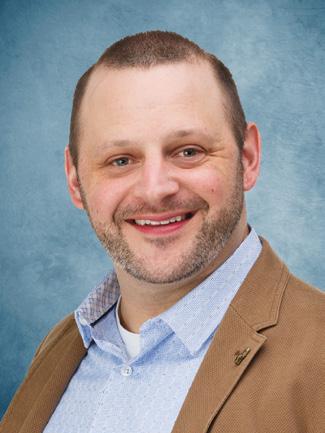
“We have two job vacancies, which is a lot when you have only 16 total employees and are pursuing growth initiatives,” he said. “It’s frustrating because, as an entrepreneur, you want to grow. But with the staff we have, we’re at maximum capacity. We’re taking on some new clients, but we do so very selectively.”
Surprisingly, the talent shortage isn’t limited to just college graduates. Gentile said Honkamp increasingly finds it harder to hire more experienced accountants, too.
Hauser added that his firm also struggles to find seniorlevel accountants and intermediate-level staffers.
“In fact, I can’t recall a time when recruiting overall has been this difficult,” he continued. “Even when we successfully recruit someone, it takes substantially longer from job posting to hiring compared to how it used to be maybe five years ago.”
At Fond du Lac-based Huberty, which employs about 70 people across four Wisconsin offices, finding experienced accountants with two to five years of experience also is
The accounting talent shortage is sparking
approaches to employee recruitment and retention efforts.
challenging, said Kristin Olson, human resources senior consultant.
Why the dearth of experienced accountants? Olson said many students she talks to at accounting clubs and career fairs tell her they want to do public accounting for two years and then go into private accounting.
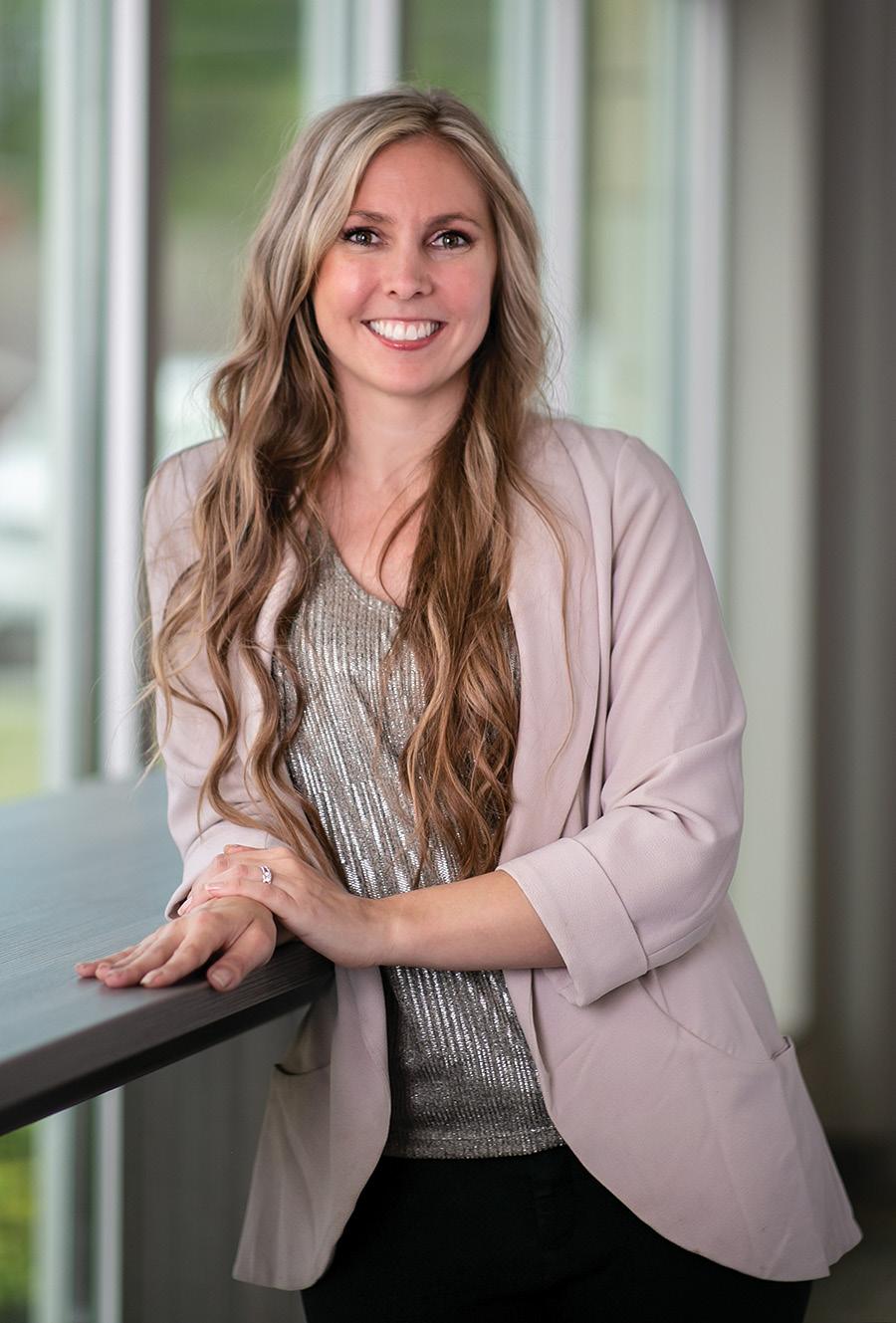
So that’s one way the firms lose experienced people. Another problem, Gentile pointed out, is that many seniorlevel accountants retired early during the pandemic, after evaluating their work-life balance. As a result, Honkamp now offers employees a hybrid work schedule in which they can work from home one to two days a week.
The trend toward remote employees also makes hiring more difficult because accounting firms now compete nationally for employees, not just locally or regionally.
“It’s hard to compete with offers from New York firms, for instance, that pay more money and will let employees work remotely,” Gentile noted. “Remote work opens up more opportunities — and prospective employees go to the highest bidders.”

One reason for the shrinking pool of new CPAs is that accounting has a bad reputation for long hours, lots of pressure and the stress of tax season.
Franceschi noted that long work hours simply aren’t as appealing to today’s college graduates compared to past generations. As such, she said, management at Ritz Holman is “having a lot of conversations” about how to inspire young talent to stay in public accounting.
“We need to figure out what public accounting will look like 10 years from now in order to retain employees,” she said.
Gentile said Honkamp offers flexible work schedules, made possible through better-managed workloads, as well as opportunities for employees to socialize at coffee hours, food-truck events and the like.
“Bonding helps with retention,” she said. “If people like who they work with, they’re not as eager to leave.”
In addition, the company created an accounting specialist position that performs lower-level recurring bookkeeping
for clients. The job requires only a two-year accounting certificate.
“We were hiring only for four-year degreed positions, so this gives us another pool of talent to bring into the pipeline,” she explained. “It also frees up our CPAs to do the more advanced work.”
All four firms also have enhanced their college recruiting efforts. For example, Gentile said Honkamp now reaches out to high school students, which creates another way to feed the company’s pipeline. In addition, the firm developed a more robust internship program that includes taking accounting faculty members at colleges near its four offices out for lunch — events that partners also attend.
“That gives the faculty a better feel for our company, and we get a feel for who the top students are so we can reach out to them before fall internship recruiting starts,” she said.
“
Bonding helps with retention. If people like who they work with, they’re not as eager to leave.
– Richelle Gentile
Furthermore, the firm now makes full-time job offers to sophomores and juniors, not just seniors.
“It’s hard to find people, so we’re trying to lock them in early,” Gentile said.
At Huberty, accountants join HR employees in attending accounting club meetings and job fairs, Olson said.
“I can tell them how great our firm is until I’m blue in the face,” she said. “But until they hear it from another accounting professional — someone who once was in their shoes — they take it with a grain of salt.”
Huberty also has established what it calls a “premier student program” that’s centered around creating networking opportunities for top-performing college sophomores, juniors and seniors who can then vie for internships.
“One of our managers started as an intern in this program,” Olson said. “It builds excitement around intern opportunities and gives them a taste of our office culture.”
In addition, Huberty is striving to reduce its tax-season hours to a maximum of 40 to 45 hours a week, which would aid retention efforts as well as make the firm more attractive to job candidates.
“We’re now at about 55 hours a week during the peak of tax season and 36 hours per week throughout the summer, so we’re getting there,” Olson said.
Other firms also are looking at work schedules. At Ritz Holman, Franceschi said interns are guaranteed a 40-hour work week to provide a better work-life balance. The firm also offers paid parking for employees and interns, which saves them about $160 a month; pairs interns with an intern coach (preferably someone who interned there); and makes sure they get a chance to work with partners.
“Young people think it’s pretty cool that they get to work with partners,” she said.
Hauser said his firm, too, has adjusted work hours. “From the end of tax season to Labor Day, we close on Fridays so employees can have three-day weekends,” he said. “If we work hard, we’re going to play hard, too.”
Northland’s president also said his firm took a more dramatic approach to the pipeline problem: re-evaluating the
firm’s business model and employee resources, resulting in a decision to drop certain clients and focus more on expanding services to the remaining existing clients.
“Every curse has a blessing,” said Hauser. “For us, the past two years forced us to work on our company as much as we work in it. So we spent more time than normal reviewing our core service areas and finding ways to expand those services across our existing client base.”
At the same time, the firm performed a comprehensive review of clients and terminated several that consumed a lot of time but didn’t generate sufficient revenue. While the decisions were emotionally difficult, Hauser said the parting with clients was amicable.
Hauser felt comfortable making the move because many existing clients said they also are short-staffed and subsequently need more help with things like bookkeeping, tax planning and so forth. That gave Northwoods an opportunity to deliver an extra value-add and make the firm more client-centric.
“We’re very pleased with the results so far,” he said. “It was totally counterintuitive to my mindset as an entrepreneur, but it also was one of the healthiest exercises I ever did for my company — it forced us to do something we otherwise wouldn’t have considered.
“Sometimes you have to make lemonade when you’re given lemons.”
Ken Wysocky is a freelance writer based in Whitefish Bay. Contact him at 414-962-6202 or kenwysocky@gmail.com.
“
For us, the past two years forced us to work on our company as much as we work in it.
– Ben Hauser

October 1, 2022 – November 30, 2022
Emily Barlow
Menasha Corp.
Nolan E. Beirne
CLA
Aaron Billings
Megan C. Boland
SVA Certified Public Accountants
Alan R. Braatz
Jacqueline Carley
Terrence L. Clough
The Parish Children’s School
Andrew J. Coldren
FJ Turner High School
Michelle Daugherty
Renee M. Dudley
Matilyn Duin
UW–Stevens Point
Kathleen C. Govier
Emalie Hahn
Wegner CPAs
Brett M. Killion
Lakeland University
Zachery Klassy
Wegner CPAs
Jacob T. Klein
Mitch A. Kuhns
STI Holdings Inc.
Brad Kussow
Vrakas CPAs + Advisors

Brian F. Leibl
Indian Community School Inc.
Nicole R. Lichte
SVA Certified Public Accountants
Michael J. Mahan
Christopher Malinger
Scribner Cohen & Co. S.C.
Casey Meyer Catalyst Consulting Group


Alexandria Miller SBS Tax LLC
Ashley A. Mussehl
Tiffany Myers
Manitowoc Public Utilities
Justin M. Norris
UW–Whitewater
Daniel J. Nugent
UW–Platteville
Patrick O’Connell
Baisch Engineering Inc.
Susanne M. O’Halloran
Bryce J. Pass Wipfli LLP
Mark F. Porst
Kim M. Pritzl
Kim Pritzl CPA LLC
Lisa Rehbein
Chortek LLP
Charles D. Roamer
Yesenia Rodriguez Villalobos
Susan A. Sowatzke
Iconica Inc.
Claudia A. Vlisides
Emma Weber RSM US LLP
Jessica Wolenec
CLA
Aaron K. Young
Spectrum Wealth Management
Some of the opportunities include:
• Assisting in efforts to attract students to the profession. • Providing strategic governance in accordance with the WICPA Educational Foundation mission. • Acquiring new leadership skills.
The window on the current CPA Exam format is quickly closing, making the new CPA Evolution licensure format an imperative classroom focus. Accounting professors serve as tip-of-the-spear resources to help students understand the new format and should be adjusting both curriculum and classroom learning approaches.
CPA Evolution maps to current market trends, reflecting increased demand for CPAs who can double as technologists and think more critically within problemsolving, client service environments. At Saint Peter’s University, where I currently teach undergraduate students and also serve as the departmental CPA advisor, we have been adjusting our focus since last fall and will continue to do so as more resources emerge from the American Institute of CPAs (AICPA), National Association of State Boards of Accountancy (NASBA) and more.
Here are three ways that educators can better prepare students for CPA Evolution:

Educators should map student advising language to the new CPA Evolution Model Curriculum. The new model uses a “core + discipline” approach. This language frames what students need to already be doing: mastering the core accounting curriculum but also thinking of a “discipline” focus for the job market.
The core represents the spine of the typical accounting major requirements. The discipline represents a direction that a student can specialize in for purposes of taking the new CPA Exam. The three disciplines are:
• Business Analysis and Reporting, including research, government and nonprofit accounting and advanced accounting topics
• Information Systems and Controls, including risk assessment, tests of internal controls and system and organization controls (SOC) engagements
• Tax Compliance and Planning, including individual and corporate taxation
The disciplines can be framed as a focus for electives, potential minors and potential graduate-level courses but also as a pathway into the workforce.
Technology, data analysis and data visualization should be integrated into every course, including fundamentals of accounting. Accounting textbooks have been integrating
data-intensive skills for years; more is likely to come as they adapt to the new licensure requirements. Students should also be increasingly pushed into technologies like spreadsheets, data visualization software and coding.
Educators can do this as early as the fundamentals in accounting courses. For example, I asked my students to create a balance sheet from scratch within a spreadsheet, using ledger data pulled from a textbook exercise. This was a simple yet powerful exercise that required me to build more time into the lesson as the students struggled to master the spreadsheet environment in addition to learning the fundamentals of accounting. The most basic spreadsheet tasks — such as widening columns or merging cells, writing formulas and learning data types, and separating the account name from the account balance into separate cells — was
“
Accounting professors serve as tip-of-the-spear resources to help students understand the new format and should be adjusting both curriculum and classroom learning approaches.
time consuming for them to master. That was time I needed to create in my class, but it was worth it; it gave students the space to act in two spheres at once — accounting and technology — which is what the workforce is demanding of them. Educators must give students that experience in the classroom.
Accounting programs can also adjust on a macro level. In fall 2021, Saint Peter’s University launched “Microsoft Excel for Accounting & Business Environments,” and the course is now a required computer science course for accounting majors.
Educators should leverage guest speakers, particularly recent graduates who are working at the staff level. Current accounting students are learning during an exciting and rapidly changing time in the profession. Bringing in guest speakers can help classrooms remain connected to the profession. Once again, this is time that professors
must surrender, but benefits abound. Last semester, I invited two former students back to speak. Their insights were immediate, concrete and relatable to students in the classroom, and generated deeper discussions around concerns that many students felt about entering the workforce, approaching CPA Exam prep and more.
Adjusting curriculum and classroom learning toward CPA Evolution and the 2024 CPA Exam changes is an imperative for the college classroom. Professors and program leaders must help their students enter the 2024 paradigm prepared to not just pass the CPA Exam but thrive in a new and exciting career.
Brigid D’Souza, CPA, MBA, is an assistant professor and CPA advisor at the Frank J. Guarini School of Business at Saint Peter’s University. She can be reached at bdsouza@saintpeters.edu.
This article was originally printed in New Jersey CPA magazine and is reprinted with permission from the New Jersey Society of CPAs.
Contact Marcia Tillett-Zinzow, editor, at mtzinzow@icloud.com.



Over the past five years, protecting the CPA license from deregulation efforts at the state level has become paramount for CPA profession advocates. Much of the debate concerning the deregulation of professions and occupations stems from both state policymakers’ interest in decreasing the regulatory footprint of government and an attempt to create more economic and workforce opportunities for citizens. Additionally, many policymakers contend that professional and occupational licenses hamper a state’s ability to import and retain needed talent in certain sectors, especially health care. This summer, discussions around licensing became more prominent in Madison with the consideration of licensingrelated legislation and the work of the Wisconsin State Legislature’s Study Committee on Occupational Licenses.
The Wisconsin State Legislature’s consideration of professional and occupational licensing is part of a national trend that traces back to 2015, with the U.S. Supreme Court’s decision in North Carolina State Board of Dental Examiners v. Federal Trade Commission. The court found that licensee-controlled state regulatory boards must be actively supervised by a neutral state entity for the board to be immune from federal antitrust law. For state boards of accountancy, this neutral state entity is the governor, who appoints members to the board. Even though the ruling directly concerned dentists and was vague regarding the context of active supervision, its ramifications apply equally to other regulatory boards, including state boards of accountancy. Specifically, the ruling puts members of state boards of accountancy at potential risk of being personally sued for actions taken in their official capacity as a board member. This presents a challenge for state boards of accountancy since board members are chosen from the pool of licensees.


The Obama Administration also issued a framework for policymakers on occupational licensing that year. The framework recommended several best practices to ensure that licensing protects consumers without placing unnecessary restrictions on employment. It called for limiting licensing requirements to those that address legitimate public health, safety and welfare concerns and the harmonization of licensing requirements across state borders to increase mobility. Subsequently, the Trump Administration built upon the framework, stressing deregulation and convening workshops
for state governors to discuss occupational licensing. This message also carried over to the Biden Administration.
Since the Supreme Court’s decision, several approaches to curb the regulation of occupations and professions have emerged across the United States. Since January, 46 states considered over 300 bills that focused on the deregulation of some aspect of professional licensing or removing barriers to cross-border practice. The approaches in these bills include the adoption of a concept known as universal licensing, altering the composition of state regulatory boards, requiring regulatory boards to undergo periodic reviews and the adoption of consumer choice provisions. Many states are also examining the consolidation of regulatory boards and agencies due to budgetary constraints as well as examining ways in which license portability and reciprocity can be expanded. Given their uniqueness, it is helpful to understand the most prominent approaches and their impact on the CPA profession.
“
Over the past five years, protecting the CPA license from deregulation efforts at the state level has become paramount for CPA profession advocates.
As with the reciprocal licensure process for CPAs, the goal of universal licensing laws is the streamlining of regulations for those individuals who move to a new state and want to practice their trade or profession. States that adopt these laws agree to recognize an occupational or professional license granted by another state. Currently, 18 states have enacted universal licensing laws. Unfortunately, if drafted incorrectly, universal licensing laws may not account for existing systems of reciprocity, including the process CPAs use to obtain licensure in other states. Moreover, these laws may not account for systems of cross-border practice such as CPA mobility, in which an individual may simply wish to provide services to clients in another state.
Another type of licensing legislation under consideration in states is known as consumer choice. Under the concept of consumer choice, any person can practice an occupation or profession without a license if they obtain a consumer’s consent to using an unlicensed person for the work. If enacted, this type of legislation may allow a client to engage the services of an unlicensed person rather than a CPA to perform an attest service. Allowing a nonlicensee to contract with a consumer to provide such services could erode the trusted advisor role CPAs play in the financial system, where financial statements are relied upon every day by banks, insurance companies, governments and private individuals. Consumer choice bills have been considered and defeated in several states, including Missouri and West Virginia.

Examinations of the regulatory structures that govern occupational licensing through sunrise and sunset reviews are also frequently employed by states. A sunrise review occurs prior to the introduction of a bill and focuses on the advantages and disadvantages of licensing a certain occupation or profession. Conversely, a sunset review provides for periodic reviews of existing occupations and professions to determine how they are working and how they can better serve the public. Upon the completion of a sunset review, legislation must be enacted to continue the licensing of those occupations and professions that were reviewed. According to the National Conference of State Legislatures, 16 states have formal sunrise processes, while 36 states have some form of regulatory sunset process for occupational licenses. Illinois enacted its sunset review process in 1979, requiring all professions and occupations to undergo a review by the governor and the General Assembly every 10 years. This review determines the need for, and public benefits derived from, the regulation of a profession or occupation licensed by the state. The review also examines potential barriers to entry while considering
how the absence of regulating a profession or occupation might impact the public health, safety and welfare.
This public policy landscape informs the discussion around occupational licensing currently underway in Wisconsin. Legislators considered several licensing-related bills over the past few legislative sessions. For example, Assembly Bill 902 and Senate Bill 469, both universal licensing bills, were introduced but failed to pass. The bills applied to all professions and occupations regulated by the Wisconsin Department of Safety and Professional Services (DSPS), including CPAs. The main authors signaled they will be reintroducing these measures in 2023, and the Wisconsin Institute of CPAs (WICPA) is working with the authors to ensure the bills acknowledge the existing system of reciprocity for CPAs and remove a residency requirement that is not included under current law. In 2022, the WICPA was also successful in defeating two bills —
“
Allowing a nonlicensee to contract with a consumer to provide such services could erode the trusted advisor role CPAs play in the financial system ...
Assembly Bill 857 and Senate Bill 824 – which required legislative approval for any change to an examination required for licensure, including the Uniform CPA Examination. The CPA profession routinely undertakes a practice analysis to make any necessary changes to the Uniform CPA Examination to protect the public. Thus, the Legislature would need to consider these changes prior to the use of the examination in licensing Wisconsin CPAs. If these bills had passed, Wisconsin would have lost substantial equivalency with the other 54 jurisdictions that license CPAs since the current national examination would no longer be in use in the state.
The Legislature also formed the Study Committee on Occupational Licenses, which was charged with reviewing the current occupational licensing system administered by DSPS and convened its first hearing in August 2022. The American Institute of CPAs, through the Alliance for Responsible Professional Licensing (ARPL), testified at the committee’s hearing in October. ARPL is a national coalition representing technical professions, including CPAs, architects, engineers and land surveyors. The testimony encouraged committee members to avoid approaching licensing with a broad brush and to instead

“focus on the aspects of licensing in Wisconsin that are not working. It also called for any recommendations from the committee to acknowledge those systems of cross-border practice and reciprocal licensing that are working. Following its review, the committee issued draft recommendations in November, which include licensing approaches seen nationally that could negatively impact the CPA profession’s successful systems of mobility and reciprocity.
The CPA profession in Wisconsin, through the work of the WICPA, has been a leader in promoting the need for responsible licensing systems that protect the public. With reforming the state’s professional and occupational licensing system top of mind for legislators in 2023, the CPA profession must bring a strong voice to these discussions in Madison. All Wisconsin CPAs can play a role in elevating that voice and are encouraged to support the WICPA’s advocacy efforts on protecting the public and capital markets through the CPA license.
James Cox is associate director of state legislative and regulatory affairs for the American Institute of CPAs. Contact him at 202-434-9261 or james.cox@aicpa-cima.com
The CPA profession in Wisconsin, through the work of the WICPA, has been a leader in promoting the need for responsible licensing systems that protect the public.
In the March/April 2022 issue of On Balance, we wrote to inform Wisconsin’s CPAs about the federal Corporate Transparency Act of 2020 (CTA) and how it could impact them and their clients. Since then, the final regulations governing the implementation of the CTA have been approved. We wrote this article to share details on the final regulations and what they mean for CPAs and their clients.


Before getting into the details, note that the timelines for the CTA have been pushed forward. 2023 will be a year of planning since the implementation of the law begins Jan. 1, 2024. Business service providers should have the time to prepare.
Sam Wayne, JDThe CTA’s goal is to prevent fraudulent actors from using business entities to launder money and hide assets, and it empowers the U.S. Treasury Department to deal with these activities through its Financial Crimes Enforcement Network (FinCen).
We wrote in the first article that most business entities in Wisconsin will be required to report the names of their beneficial owners, including those who exercise substantial control and those who own or control 25% or more of their equity, as well as their applicant, who is the person who filed the application to form the entity (such as Articles of Incorporation or Articles of Organization).

Large organizations remain exempt, as they are more likely to be required to provide this information to other governmental agencies. These are organizations with at least
20 full-time employees; gross domestic operating receipts of $5 million or more, as shown on the entity’s federal tax filing; and a physical office in the United States. Entities that move over or under either the employee or gross receipts line should expect to report their information to FinCen.
PCAOB accounting firms also are exempt.
The final regulations clarify that:
1. Existing entities will not be required to report on their applicant(s). With harsh penalties for noncompliance of up to $500 per day or imprisonment, this was a matter of great concern, as it would be a great burden for a legacy company to track down the names and contact/ identification information of the person(s) who filed the initial formation application.
2. For each beneficial owner, existing entities will be required to report their full legal name; date of birth and current residential street address; and the identification number from an acceptable identification document, such as a valid passport, a driver’s license or an identification number assigned by FinCen. For non-FinCen identification numbers, the entities will be required to upload a scan of the identification documents.
3. Entities existing prior to Jan. 1, 2024, will have until Jan. 1, 2025, to report this information for all beneficial owners.
4. Beginning Jan. 1, 2024, new entities will have 30 calendar days to report this information for all beneficial owners as well as for applicants.

5. A “beneficial owner” is defined as an individual who exercises substantial control over the entity or owns 25% or more of the entity.
a. A person exercises substantial control if they: i. are a senior officer with the entity, excluding corporate treasurers and secretaries but including general counsel; ii. can appoint or remove senior officers; iii. are a board member and have either control of or substantial influence on the board of directors; or
iv. have at least substantial influence over important matters affecting the entity.
b. The 25% ownership threshold applies to an individual who owns at least that percentage of equity (or, for a corporation, voting rights), including: i. capital or profits interest, ii. convertible debt, iii. options and iv. any other manner in which an individual may obtain such an interest (drafted as a catch-all).
c. The 25% ownership threshold compares ownership via these instruments to the undiluted interest — meaning authorized but nonissued shares do not count.
6. Entities must identify the “real party in interest” — meaning that creative structuring of ownership will not exempt the individual beneficial owner from disclosure.
7. Entities will be required to update reported information in the case of any change to: a. the identities of the entity’s beneficial owners (upon death of an owner, update required after settlement of estate), b. the identification information of any beneficial owner, c. the identification information of any applicant and d. the entity’s exempt status.
8. No update must be reported for an expiration and reissuance of an identification document but must be reported for a new identification number.
9. All changes must be reported within 30 days and must be reported even if another change supersedes that change within the 30-day reporting period.
10. Errors must be corrected within 30 days of when the entity knew or should have known of the error, and a “safe harbor” from civil or criminal penalties applies only if errors are corrected within 90 days of the inaccurate filing.
11. Individual filers, entities and those who direct the filer are subject to the civil and criminal penalties.
The consensus among business lawyers is that these regulations are poorly drafted, causing uncertainty as to who must be reported as a beneficial owner. With harsh penalties for noncompliance, if there is any doubt, it is in the client’s
interest to report an individual as beneficial owner. Clients should obtain the advice of counsel before they make any decision not to report information for an individual who may be a beneficial owner.

This law gives CPA firms another opportunity to provide important services to — and add value for — their clients. We recommend that CPA firms solicit appropriate information from their clients during their annual contacts with them for either financial statement preparation or tax returns, and that their clients keep them apprised of changes in ownership or the filing of new entities.
Joseph W. Boucher, CPA, MBA, JD, is a founder and shareholder of Neider & Boucher S.C., a Madison law firm. Contact him at 608-661-4535 or jboucher@neiderboucher.com. Sam Wayne, JD, is an attorney with Neider & Boucher. Contact him at 608-441-2523 or swayne@neiderboucher.com.
“
This law gives CPA firms another opportunity to provide important services to — and add value for — their clients.
Brian Begalke, CPA, has been promoted to partner in charge of the tax and consulting division at Begalke & Associates LLC, located in Sheboygan and Plymouth.
Michael Carter, CPA, is moving from his role as chief financial and risk officer at Northwestern Mutual to chief of staff for the Office of the CEO. He will serve as the chair of the company’s senior leadership team.
Christine Dahlhauser, CPA, managing partner for the Madison office of Baker Tilly US LLP, was named by BizTimes Media as one of Wisconsin’s most influential business leaders of 2022.
Patrick J. “P.J.” DiStefano, CPA, MBA, managing partner of the Milwaukee practice at Deloitte & Touche LLP, was named by BizTimes Media as one of Wisconsin’s most influential business leaders of 2022.
Richard (Dick) Gebhard, CPA, has been honored by the Beloit Historical Society for his vast community service work, and the Beloit Daily News named him Volunteer of the Month in September 2022. Gebhard, 92, has been an active WICPA member for many years.
Kurt Gresens, CPA, CMA, CGMA, managing partner and chairman of the board at Wipfli LLP, was named by BizTimes Media as one of Wisconsin’s most influential business leaders of 2022.

Kirsten M. Houghton, CPA, MBA, CGMA, principal at SVA Certified Public Accountants S.C., has joined the board of directors of Madison’s Isthmus newspaper.

Todd Jones, CPA, will assume the role of Northwestern Mutual’s executive vice president and CFO.
David Ring, CPA, CGMA, chief financial officer at Sentry Equipment Corp., was named a CFO of the year by the Milwaukee Business Journal
John S. Scheid, CPA, has been appointed to the Sprecher Brewing Co. board of directors.
Justin J. Schutte, CPA, EA, has been promoted to manager at Berndt CPA LLC in Madison.


Aaron Simanek, CPA, has been promoted to supervisor at SVA Certified Public Accountants in Brookfield.
Terry Strittmater, CPA, was named among Wisconsin’s most influential business leaders of 2022 by BizTimes Media. Strittmater, based in Wauwatosa, is the managing principal of southeastern Wisconsin for CliftonLarsonAllen (CLA).

Victoria Thayer, CPA, MSA, has been promoted to manager at Berndt CPA LLC in Madison.
Ed Thelen, CPA, has received the 2022 District 35 Toastmasters “T” award, based upon his significant contributions to improving and advancing the cause of Toastmasters in District 35 over a period of years, including serving as district director in 2018-2019.

Robert (Bob) J. Daley Sr, CPA, passed away on Friday, Nov. 18, 2022. After graduating from Aquinas High School in La Crosse, Daley studied accounting at UW–Wisconsin and Southern Methodist University in Dallas. He became a CPA and worked for Hawkins Ash Baptie & Co., retiring from the firm in 1992. Daley was involved in myriad organizations, including serving as president of the La Crosse Rotary Club; chair of the Catholic Social Services Advisory Board; chair of the Wisconsin State Audit Committee for the Knights of Columbus, Knight of the Equestrian Order of the Holy Sepulcher of Jerusalem; director of the La Crosse County Taxpayers Association; Grand Knight of the Knights of Columbus; president of the La Crosse Sierra Club; and president of the Western Chapter of the WICPA. He was also a member of the AICPA and both the Minnesota and Michigan institutes of CPAs. Daley served for many years on the Viterbo University board of advisors and was active in numerous capacities with the National Association of Housing and Redevelopment Officials. For six years, he was a director of the Associated Accounting Firms International, an association of 35 independent CPA firms with offices in the U.S., Canada and the United Kingdom. He is survived by his seven children, 13 grandchildren and 11 great-grandchildren.
(1949 – 2022)
Elliot Ames Kaas, 73, of Eau Claire, passed away on Thursday, Dec. 22, 2022. Kaas attended Osseo High School, and after graduating in 1967, he went on to earn a bachelor of science degree in accounting from the University of Wisconsin–Eau Claire in 1971. In 1994, he earned an MBA from the University of Minnesota. As a CPA, Kaas worked at Bertelson & Co. and then helped start Andersen Bowman & Co., which later merged with Wipfli LLP in 2000. He retired in 2009 and became a member of the Elks Lodge 402 in Eau Claire in 2011. Kaas was named Elk of the Year in 2012 and served as the Exalted Ruler of Lodge 402 at the time of his death. He is survived by his wife, Lizabeth Kaas; two daughters; three grandchildren; his brother; and many other relatives and friends.
J. Roblee, CPA (1944–2022)
Donald J. Roblee, CPA, age 78, passed away Thursday, Nov. 10, 2022. Roblee graduated from Marquette High School and went on to earn an accounting degree from the University of Wisconsin–Milwaukee, ultimately becoming licensed as a CPA. He served businesses and individuals for many years through his Elm Grove firm, Roblee Group LLC. After retirement, he enjoyed playing golf in Arizona as well as at the Wisconsin Club in Milwaukee, taking bicycle excursions in Wisconsin and Europe, traveling the world and watching the sunset on Lake Katherine on family vacations up north. Roblee is survived by his wife, Terry Kaminski; a son and daughter; five grandchildren; two brothers and a sister; and many other relatives and friends.

(1947–2022)
Nicholas S. (Nick) Lascari, CPA, passed away on Wednesday, Nov. 2, 2022, at the age of 74. He was a longtime WICPA member and past board president who served on numerous committees, taught CPE courses and was on the AICPA Governing Council from 2013–2016. In 2013, he was awarded the WICPA’s Distinguished Career Award. Lascari graduated from Marquette University in 1970 (summa cum laude) with a BSBA in accounting and finance. He was licensed as a CPA in 1972. His career included a senior tax manager position with Baker Tilly Virchow Krause LLP and partnerships with the firms of Vrakas/Blum S.C.; Conley McDonald & Co.; Virchow Krause; Balistreri, Jezo and Lascari LLP; and Gordon J. Maier & Co. LLP. Lascari also served as treasurer of the Better Business Bureau of Wisconsin Inc. from 1998–2013. Preceded in death by his beloved wife of 51 years, Delores, Lascari is survived by his sons, Scott (Michelle) and Jeff Lascari; four grandchildren; a sister; and other caring relatives and friends.
please send a copy of the obituary or contact Marcia Tillett-Zinzow at mtzinzow@icloud.com.

WICPA Connect is your exclusive members-only networking and knowledge base designed to connect you with WICPA members and resources.
• Network with peers and grow your contact list using the member directory of more than 7,000 members.
• Post questions to find out from fellow members who have the expertise or may have been in the same situation.
• Personalize your profile by adding your interests, education, experience, honors and even your photo.
• Contribute and download resources such as documents, whitepapers, articles, reports, guides and more.
• Share your knowledge and expertise by answering questions and offering your insights and ideas to fellow members.
• Customize your experience with controls for profile visibility, discussion signatures, notifications and more.

As a WICPA member, you already have a profile on WICPA Connect. Simply go to wicpa.org/connect and sign in using your existing website login information.
Connect with thousands of fellow members now at wicpa.org/connect
When the Inflation Reduction Act of 2022 was signed into law last August, it ushered in a new era of IRS funding that will support the agency over the next 10 years. Broadly speaking, the nearly $80 billion granted to the IRS under the act will be spent as follows:
• $3.2 billion for taxpayer services
• $25.3 billion for IRS operations support
• $4.8 billion for business systems modernization
• $45.6 billion for enhanced enforcement activities
As all tax practitioners are well aware, the IRS failed terribly in providing adequate support and services to the taxpaying public during the COVID-19 pandemic. This is not entirely the fault of the agency itself. The agency was still struggling with backlogs caused by stagnant funding, a consistently shrinking workforce and the longest-ever government shutdown in 2018–2019. This made the agency entirely unprepared for the burdens 2020 and 2021 would bring.
At the end of the 2020 filing season, the IRS had 35.8 million unprocessed returns. This astonishing figure had only decreased to 13.3 million by the end of the 2021 filing season. As of November 2022, 4.2 million returns still remained unprocessed. Phone service was also severely limited during 2020 and 2021, with the IRS answering only 19% and 18% of all calls in 2021 and 2022, respectively. The reasons for these shortcomings were many but included a substantial amount of added responsibilities placed upon the agency in administering pandemic relief programs.
The $3.2 billion in funding allocated for taxpayer services is intended to help remedy these issues by focusing on filing and account services, prefiling assistance and education. The IRS has already hired 4,000 new customer service representatives to help answer phones and provide other services. An additional 1,000 customer service representatives were expected to be employed by the end of 2022. The IRS is also working to hire 700 new employees to fully staff its 270 walk-in Taxpayer Assistance Centers for the first time in a decade.
Of the $3.2 billion allocated to taxpayer services, $15 million is to be used to investigate whether the IRS should create its own free, direct e-file program for taxpayers.
The $25.3 billion dedicated to operations is intended for the payment of rent, facilities, security, telecom, information technology and other operations expenses.
The $4.8 billion allocated for system modernization is intended to implement a system upgrade plan for taxpayer services, operations and cybersecurity. The funds are expected to be used to further develop automated callback systems for phone lines. The funds are not to be used for the maintenance and operation of “legacy” systems.

“
As all tax practitioners are well aware, the IRS failed terribly in providing adequate support and services to the taxpaying public during the COVID-19 pandemic.
$80 Billion to Spend — What Should We Expect From the IRS?
Teuber, JD
While practitioners will appreciate improvements to taxpayer service and system modernization, the tax-paying public is more concerned with what the $45.6 billion dedicated to enforcement will be used for. The news often cites 87,000 as the number of additional employees needed to rebuild and revitalize the IRS. This does not necessarily mean that the IRS is hiring 87,000 additional revenue agents, revenue officers and/or special agents to focus on audits, collections and criminal investigations.
In testimony before Congress in 2021 (when the IRS hoped to receive funding through the proposed Build Back Better legislation), Commissioner Charles Rettig explained that the new hires are intended to replace an anticipated 52,000 employees due to attrition over the coming six years and to rebuild following staffing declines over the last decade. He also emphasized that the new hires would include appeals officers, taxpayer advocate representatives and IRS counsel across all experience levels. Nevertheless, to achieve its projected $203 billion in gross tax revenues ($123 billion net) over the next 10 years, considerable enforcement efforts will be necessary.
The funds dedicated to enforcement are also expected to include investment in “investigative technology.” Such technology is expected to be used to help better identify which taxpayers to audit through the use of data. Conceptually, better data analytics can reduce the number of
“no change” audits by not auditing those taxpayers in the first place and focusing on those audits likely to yield adjustments.
The IRS has also explained its intention to use a portion of the enforcement funds to monitor and enforce taxes on digital assets such as cryptocurrencies. Given the new (and broad) information reporting requirements for digital assets under the Infrastructure Investment and Jobs Act, as well as the inclusion of digital assets in the Treasury Department’s 20222023 Priority Guidance Plan, we can anticipate a considerable amount of the funding being dedicated to these purposes.

Not all increased activities will deal with digital assets, and most increased audit activity will resemble more traditional forms. But who will be the target of the increased audit activity? Shortly before his exit from the agency, IRS Commissioner Rettig explained that the IRS had developed its strategy around an agency directive that audit rates for households making less than $400,000 should not rise relative to recent years. While not written into law and subject to change based on compliance trends or other pressures, if the directive is followed, we can expect that the IRS will stick to its expressed plan to focus audits on high-net-worth individuals, large pass-through entities, large corporations, employment taxes, transfer pricing, non-filers, cash payments over $10,000 and abusive transactions.
Rob Teuber, JD, is a shareholder with the law firm von Briesen & Roper s.c. in Waukesha and Milwaukee. Contact him at 414-270-2538 or robert.teuber@vonbriesen.com.

Just think how much things have changed over the past 10 years in the way we communicate with one another and share information. Everything is instant (think text messaging), everything is more visual (think Snapchat and Tik Tok), and everything is more mobile (think smartphones and tablets). It all started with social interactions but has rapidly extended to business information sharing. As professionals, we must ask ourselves, “Are we adapting our reporting model to keep pace?” The answer, I believe, is “sort of.”
ByThe good news is that an abundance of new-generation tools is available to us to develop reporting systems that are timelier, more relevant and more easily understood than ever before. The bad news is that only a fraction of CPAs have taken steps to embrace the key performance indicators (KPI) dashboard and the opportunity that it provides for us to do a better job of informing our clients, business owners, management teams and others. This article will provide you with some insight and motivation for embracing this new reporting model.
In order to understand where we are now with our reporting model, let us take a quick tour of the history of financial reporting over the past 30 years. When I entered the accounting profession in the early 1980s, everything was mainly paper-based with pegboards, general ledger binders and typewritten financial statements. This seems archaic by today’s standards.
Things began to change with the introduction of the personal computer. Financial reporting became more
automated with PC-based accounting software, spreadsheet tools and word processors. That was a big step, and often a painful one, as we started with very primitive software solutions and finally reached a point of maturity with an array of quality accounting systems and Excel as our power tools.
The fact is, however, that even though we have improved how we go about providing financial reports, we really have not changed what we are reporting to any significant degree. Most financial reporting today is still based on the traditional profit and loss and balance sheet reports that are backward looking by their very nature. We have also made incremental improvements in cash-flow projections, budgets and graphical reporting. All in all, the changes over the last couple of decades have resulted in a much better model for providing financial reports.
John Higgins, CPA.CITP
“
The bad news is that only a fraction of CPAs have taken steps to embrace the key performance indicators (KPI) dashboard and the opportunity that it provides for us to do a better job of informing our clients, business owners, management teams and others.

We are entering a new era with a new financial reporting paradigm that significantly changes what we are reporting. The emerging trend is to provide our constituents with meaningful financial management information in the form of digital dashboards. What is happening in the financial reporting market now is a fast-paced trend to provide key financial performance indicators in real time and in a simple and intuitive format.
Think about any of your users of financial information: clients, management, business owners, stakeholders and so forth. What is it that they are most inquisitive about when it comes to financial information? Usually, they want to know things about cash flow, revenue performance, gross profit, inventory turns, profitability — all performance-based information. So often we must take the historical financial statements and provide further analysis for our users to give them the information they are looking for. That is a significant aspect of the CPA’s value proposition.
The opportunity in front of us is awesome. With the innovative technology available in financial reporting —
primarily because of cloud-based computing — we can automate the KPI analysis process to the point where it is provided to our constituents in real time and in a format that is easily understood and very graphical and explorable. Frankly, the cloud has been the primary catalyst in the increased deployment of digital KPI dashboards, and for two reasons. One is that the very nature of cloud computing means we can have information delivered instantly to virtually any device. Second, now that the cloud infrastructure has been established, we are seeing a whole new generation of software development that embraces all the benefits of the cloud. Just the simple fact that software can be developed to run through an internet browser and nothing else is huge.
We take it for granted now, but think about the early days of spreadsheet software. If you generated a spreadsheet full of ratio analysis and wanted to share it with your clients, you had to print it to paper and send it. You could not assume that they had a spreadsheet program to view it in. That, of course, is not an issue today. But my point is that today virtually everyone has a PC, laptop, tablet and/or smartphone with a browser and internet connectivity. So, we can deliver KPI dashboards to them anytime, anywhere and on any device.
You are likely thinking, “This is all interesting and conceptual, but how do I embrace it?” The good news is that you already have obtained 90% of what you need: your knowledge and experience as a CPA and a provider of financial information. The remaining 10% involves learning more about the tools that are out there today to help you build KPI dashboards and, more importantly, to find out from the users of your services what KPI information is most valuable to them.
Let’s start with the latter. When it comes to the most relevant KPIs, it is fundamental: cash, A/R aging, A/P aging, prior-period and prior-year comparisons, budget vs. actual variances, revenue trends, profitability trends …. the list goes on and on. The beauty of the situation is that you can use this opportunity to serve your constituents as a valued business advisor by helping them understand what KPI information should be important to them and then helping them analyze the financial performance of their organizations on an ongoing basis.
I was recently talking with the managing partner of a CPA firm that specializes in virtual CFO services. Their business model is focused on weekly one-hour meetings via the web Zoom. For that hour, they are simply reviewing the KPI dashboard with the client and making decisions based on the information. This is done in a value-pricing fee model in which they establish a monthly fee based on the value to the client. The back-office side of it is all completely automated, so the actual effort required by the CPAs is limited to spending the time to study the KPIs prior to the online coaching meeting with the client. By the way, the CPA told me he has seen many of his clients only via the web and never in person — even the local ones. Clients these days do not want to take the extra time out of their day for an in-person meeting. That is the beauty of all the tools that cloud computing brings to us.
I recommend that you do a little research on cloud-based accounting systems like QuickBooks Online, Xero, Sage Intacct, NetSuite and others. These are all top-selling solutions that fully embrace the KPI dashboard model. Having this functionality built right into the system makes it about as simple as it gets. In fact, the risk we face as a profession is that the software developers are providing this information without our involvement. Therefore, we need to step it up and take an active role because, at the end of the day, no matter how simple or graphical the information is, the clients need our assistance to interpret and translate for them what the information truly means in terms of business performance.
One of the most basic tools you can use for KPI dashboards is Excel. With the charting capabilities of Excel and the more powerful Power BI apps from Microsoft, you can create interactive dashboards that can be delivered through the web in real time. This approach will require more effort to get them set up, but it is a tool that is ubiquitous. There are also dedicated cloud-based KPI dashboard applications that can be used independent of your accounting and ERP systems.

I hope this provides you with a better understanding of the KPI dashboard concept and the opportunity it provides for you to add more value for your clients. I believe that the more you learn about this new paradigm, the more excited you will become about embracing it — because it provides a rare opportunity for us to be more creative as a profession.
CPA.CITP is a strategic technology advisor and co-founder of CPA Crossings LLC. JohnH. Higgins,
“
I believe that the more you learn about this new paradigm, the more excited you will become about embracing it — because it provides a rare opportunity for us to be more creative as a profession.


There is no doubt that there is a buzz about the revenue opportunity of Client Accounting Services (CAS) for accounting firms. A 2020 CAS benchmark study by CPA.com and the AICPA Private Companies Practice Section (PCPS) showed the area of CAS growing at a rate of 20%. And over the past few years, the economic and workforce changes firms have had to deal with, due to both the pandemic and the Great Resignation, presented CAS as an opportunity for firms looking for ways to realign with the services businesses are seeking now and build stronger, long-term relationships with clients.
In this article, we will define what makes CAS different from more traditional compliance-related services like tax and audit as well as explore issues accounting firms looking to add CAS to their slate of service offerings should think about as they are getting started.

In simplest terms, CAS is defined as providing outsourced Accounting Department services. The breadth of offerings can vary — some firms may focus on transactional activities like bookkeeping, payroll and bill payment, while others may include more advisory services, such as outsourced CFO, data analytics and strategic planning. And the demand for these services is high: According to a recent survey by Xero, 77% of business owners would pay someone so they could stop doing many CAS-related activities themselves.
The appeal of CAS is that it is so flexible, and in a time that certainly requires businesses to be able to pivot
“
The appeal of CAS is that it is so flexible, and in a time that certainly requires businesses to be able to pivot quickly and adapt to change, it is easy to see why CAS has been growing by leaps and bounds.
quickly and adapt to change, it is easy to see why CAS has been growing by leaps and bounds. Helping clients connect the dots in multiple areas by focusing on their pain points in navigating the changing economic environment through providing CAS is an innovative yet practical way for your accounting firm to deliver more value.
When it comes to adding CAS to your practice, there are several things to consider. First, think about the services that your firm already offers and the current talent on your team. Where are there places you can expand through CAS, and will you need to make changes within your team to make that a reality? Are you interested in offering transactional services only, or would you like to include advisory services in
your firm’s CAS offerings? Another thing to consider is whether you will be location-based or offer remote services. If you would like to offer remote services, do you have the hardware and software necessary for cloud-based accounting?
Some examples of typical CAS services to consider offering are basic bookkeeping, preparing financial statements and reports, preparing profit and loss statements, processing payroll and payroll taxes, sales tax filings, bill pay, collecting receivables and managing cash flow. These areas can be a good starting point in developing your CAS practice.
If you would like to branch out to more strategic and performance-related CAS services, examples of these types of services include outsourced CFO, data analytics, benchmarking, business advisory, Lean processes, strategic planning, succession planning, and mergers and acquisitions.
All of these questions and issues are important to help build your business plan and map out what you want your
CAS practice to look like. We will now take a deeper dive into three areas that can help refine your goals and plan for implementing CAS into your accounting firm’s service offerings: client acquisition, automation and talent capacity.

One of the benefits of incorporating CAS into an existing accounting firm is that you already have a base of clients who trust you and could possibly be looking for help with CAS-related activities. It may be helpful to start by providing a survey to your clients, asking them where they have additional pain points in their business that are not currently being addressed in order to see if it may be a fit to expand your relationship to work together in the realm of CAS.
When approaching existing clients about your CAS offerings, it is important to clearly show how CAS differentiates from your current compliance services, such as tax or audit. If you are able to effectively convey to your
clients that your additional CAS services will take work off their plates and enable them to focus more on the core of their business, you will have painted the picture that hiring you for CAS is a benefit for their business.
In terms of attracting new clients, referrals from your existing clients are a natural place to start. Tools to incorporate into your marketing strategy — if you have not done so already — can include your firm’s website, social media marketing and electronic newsletters.
Depending on the needs of the client and the areas of CAS on which you choose to focus, you may also want to communicate to your clients that by hiring you for CAS assistance, they will have a trusted adviser in their corner who understands the complexities of their business and can offer strategic advice when needed — an invaluable service that cannot be replaced by artificial intelligence. This discussion can also open the door to providing more strategic and performance-related services down the road, such as outsourced CFO, data analytics, benchmarking, strategic planning, succession planning or mergers and acquisitions.
No matter what you decide to include in your initial menu of CAS services, you will be meeting and consulting with clients more than you have in the past, which opens up the opportunity to incorporate automation into your practice. By
utilizing technology in this manner, you can streamline your processes, resulting in more efficiency and allowing you to concentrate on the main aspects of your CAS practice. You can also provide your clients with real-time data, giving them a more accurate picture of the finances of their business — a feature they will no doubt appreciate.

There are a variety of uses for automation in a CAS practice. You may want to look at streamlining the back-end accounting and bookkeeping tasks if you will be placing more emphasis on advisory services. Xero and QuickBooks Online are two popular cloud accounting software products that can automate the back-end bookkeeping tasks and also serve as an automation hub for the other workflows you will be managing for your CAS clients. Receipt Bank or Hubdoc are tools that can automate expense management, and Gusto can help with automating payroll. Other business areas that can benefit from automation and allow your team to focus on CAS-related activities include task management, document management and password management, among other things.
In addition, automation can enable your firm’s expansion. By streamlining the repetitive daily tasks using technology, you will be able to look at taking on more clients, including virtual clients if you are interested in offering remote services. And if you are planning on offering more strategic or performancerelated advisory services as part of your CAS practice, you will have more time to zero in on your consulting and advising work.
“
In terms of attracting new clients, referrals from your existing clients are a natural place to start.
In our discussion so far, we have reviewed the basic questions firm owners should ask when looking to get started with CAS, as well as the issues of client acquisition and automation. At this point, it is time to start analyzing your firm’s talent capacity. Talent capacity is an important area to consider when making the transition to CAS, as not sending payroll out on time due to not having the capacity to complete the work within the required timeframe, for example, would have negative consequences for your firm and would likely cause the client to look for another service provider. This step is also important because you do not want your team members to be overworked.
Think about what your current team members will realistically be able to accomplish in the hours available to them. Many CAS services need to be completed on a monthly or weekly basis, which is much different from most compliance services that are typically completed annually. Map out which team members will be working on CAS-related tasks and fill gaps by hiring additional staff as necessary. If you are utilizing cloud-based accounting systems within your CAS practice, you may consider hiring remote staff members.
Because your current team members taking on CAS tasks will need to adjust to working within tighter deadlines and balancing a different workload on a daily basis, it may be helpful to invest in upskilling or reskilling them. Time management, technology and customer service are all possible areas for reskilling that could assist your team members in making a smoother transition to CAS work.
By now, it should be clear that CAS offers a wealth of opportunity for accounting firms, particularly in these times of significant economic and workforce changes. Adding CAS to your firm’s slate of services can increase your firm’s revenue, allow for expansion into new business sectors, enable your firm to provide a wider variety of more strategic and advisory services, give team members fresh work opportunities and build stronger, long-term client relationships. And one of the best parts is that adding CAS to your firm can be accomplished in the way that makes the most sense for your individual firm, especially if you take into consideration the factors discussed in this article — client acquisition, automation and talent capacity. Arguably, now more than ever, business owners are in need of a trusted financial adviser to guide them, and CAS can help ensure a CPA will continue to be that person.
CPA.com offers a wide range of informational and educational resources dedicated to those looking to expand into CAS. Visit their CAS webpage at https://www.cpa.com/client-advisory-services.

https://www.cpa.com/cas-benchmark-survey https://www.xero.com/ca/campaigns/young-entrepreneurs-report/
Kate Smith received her BS in professional writing from the University of Wisconsin–River Falls. As the communications associate at the Tennessee Society of Certified Public Accountants, she serves as one of the chief writers on staff. She can be reached at kasmith@tscpa.com.
This article first appeared in the Tennessee CPA Journal and is reprinted with permission from the Tennessee Society of CPAs.
“
By now, it should be clear that CAS offers a wealth of opportunity for accounting firms, particularly in these times of significant economic and workforce changes.
Nancy M. Bonniwell, J.D.

Terri S. Boxer, J.D.

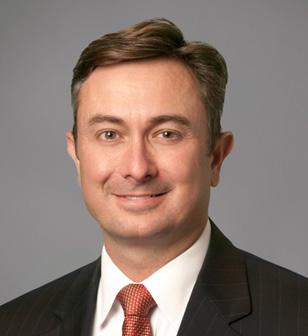



Robert E. Dallman, J.D., LL.M.

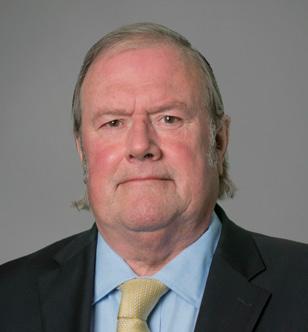
Thomas
Thomas
Thomas
Randy
Thomas
David
John
Robert
von Briesen’s team of experienced tax lawyers, many of whom have advanced designations, help businesses and individuals navigate the increasingly complex tax laws. The bottom line? We get results.
To learn more about our Tax Law Section and the services we offer, please contact Daniel Welytok, Tax Section Chair, at daniel.welytok@vonbriesen.com


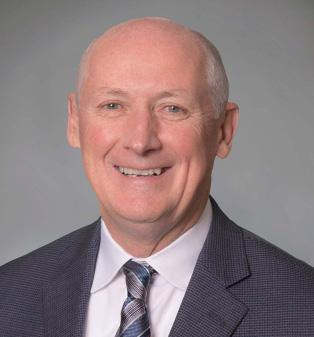



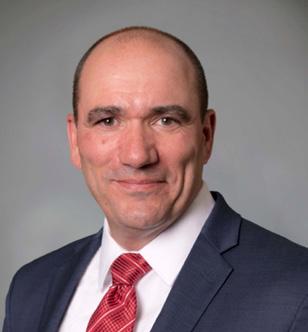

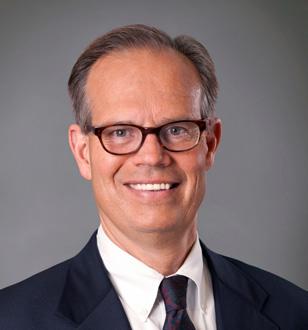
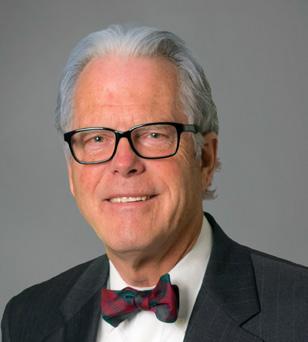
Daniel
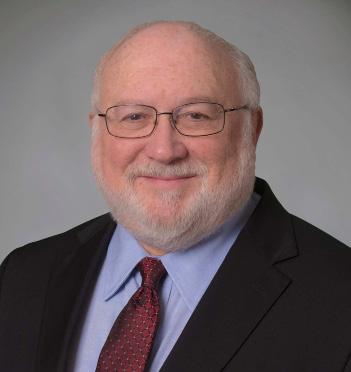

Wisconsin Institute of Certified Public Accountants
W233N2080 Ridgeview Parkway, Suite 201 Waukesha, WI 53188
